Last Updated: 4th September 2024
The National Aeronautics and Space Administration (NASA) is widely regarded as one of the top aeronautics and space agencies in the world, and landing a career in it is often a dream for young space and engineering enthusiasts. But for some, the dream is never realized owing to the restrictions imposed upon non-nationals of the United States. The desire to join such an organization stems from the fact that people believe they will gain invaluable firsthand experience working on research projects and expanding the horizons of human knowledge. While these positions may require years, or sometimes decades of experience in a relevant field, there is another side through which students can experience what it feels like to work at the forefront of science projects, termed “Citizen Science Projects”.
NASA itself has a pioneering citizen science program where it invites people worldwide to participate in groundbreaking discoveries using accessible tools. Among these initiatives is the Asteroid Search Campaign, hosted by the International Astronomical Search Collaboration (IASC). That’s where for the first time, four students (Muhammad Rehmoz Salahuddin Ayub, Dilawaiz Saghir, Malik Nauman Rauf, and Faryal Batool) from Pakistan joined this global effort back in September 2021, in a bid to bring and host the asteroid search campaign in Pakistan. These students discovered a total of 6 confirmed asteroids and created a platform, where students from all over Pakistan could participate to make new asteroid discoveries, now known as the “All Pakistan Asteroid Search Campaign” (APASC). Below is a brief history of the initiative, and how Mach Alpha contributes to it.
Pilot Campaign: 21 October – 15 November 2022
The initiation of such a groundbreaking project was no small feat. Through the concerted efforts of the four founding members, their academic peers, and a dedicated support network, development commenced in September 2021, more than a year before the first campaign. The team started by contacting IASC with an initial pitch to bring the campaign to Pakistan. In the meantime, they kept participating in other campaigns to gain more experience that would prove helpful in mentoring the first batch of students. Following the success of the initial pitch, a comprehensive proposal was submitted, and accepted by IASC in February 2022 to commence the ‘First All Pakistan Asteroid Search Campaign’ in Fall 2022.
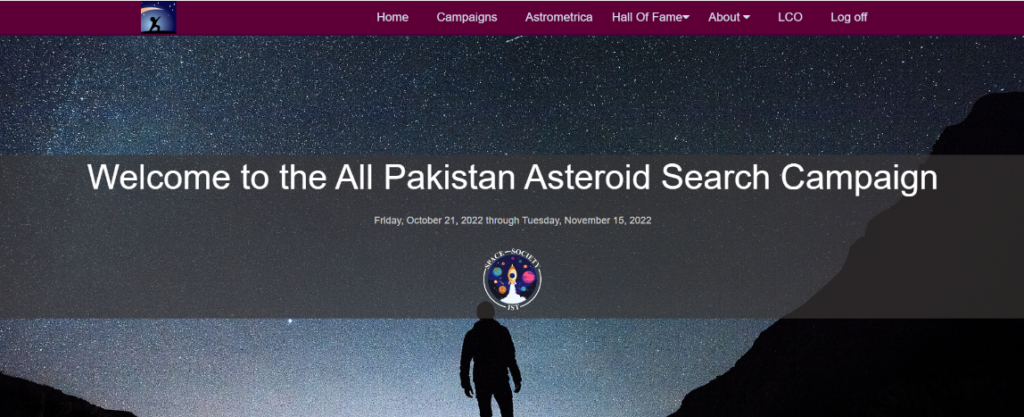
Cover photo for the first campaign on the IASC website
The first official rendition of the APASC took place in October 2022, hosted by the Space Society IST, with the Attock Astronomical Society helping on the marketing front.
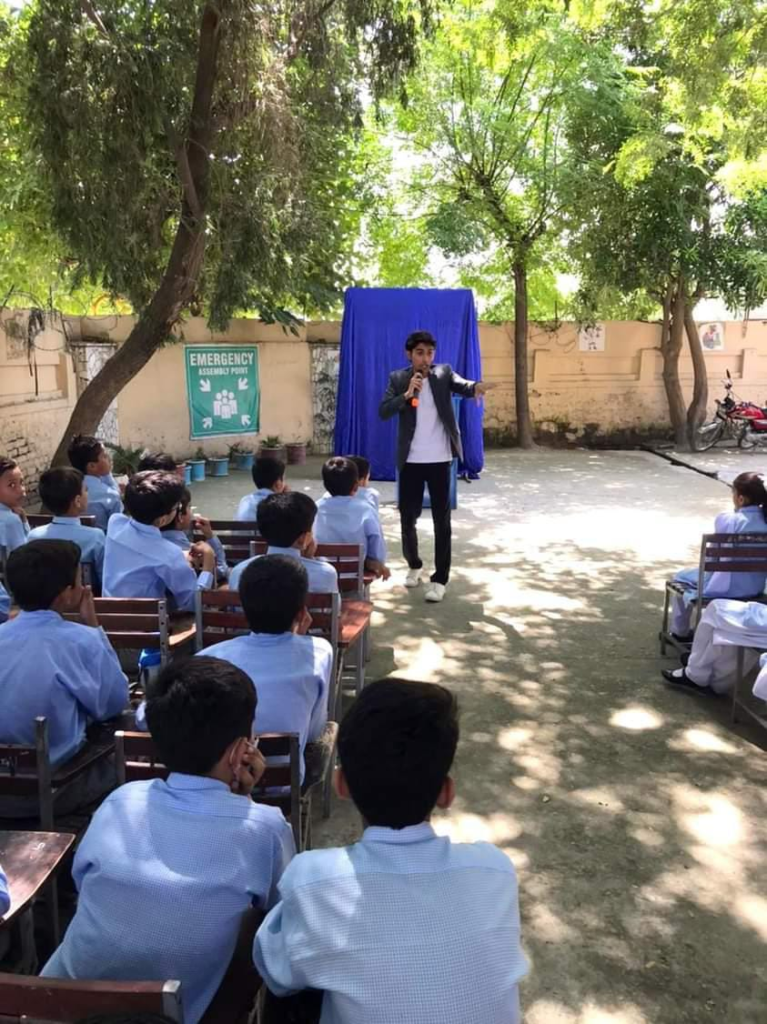
Nasir Rizwan from Attock Astronomical Society, sharing the APASC initiative with school students in Attock
40 students, aged 12 to 25, from Islamabad to Karachi, were selected from a competitive applicant pool. These students, divided into ten teams, made 14 preliminary (not finalized) discoveries and one provisional (confirmed) asteroid discovery. The campaign’s impact resonated across the nation, with the campaign being highlighted on National Television as well as in online news articles.

Screenshots from one of the meetings during the campaign with the participants & organizers
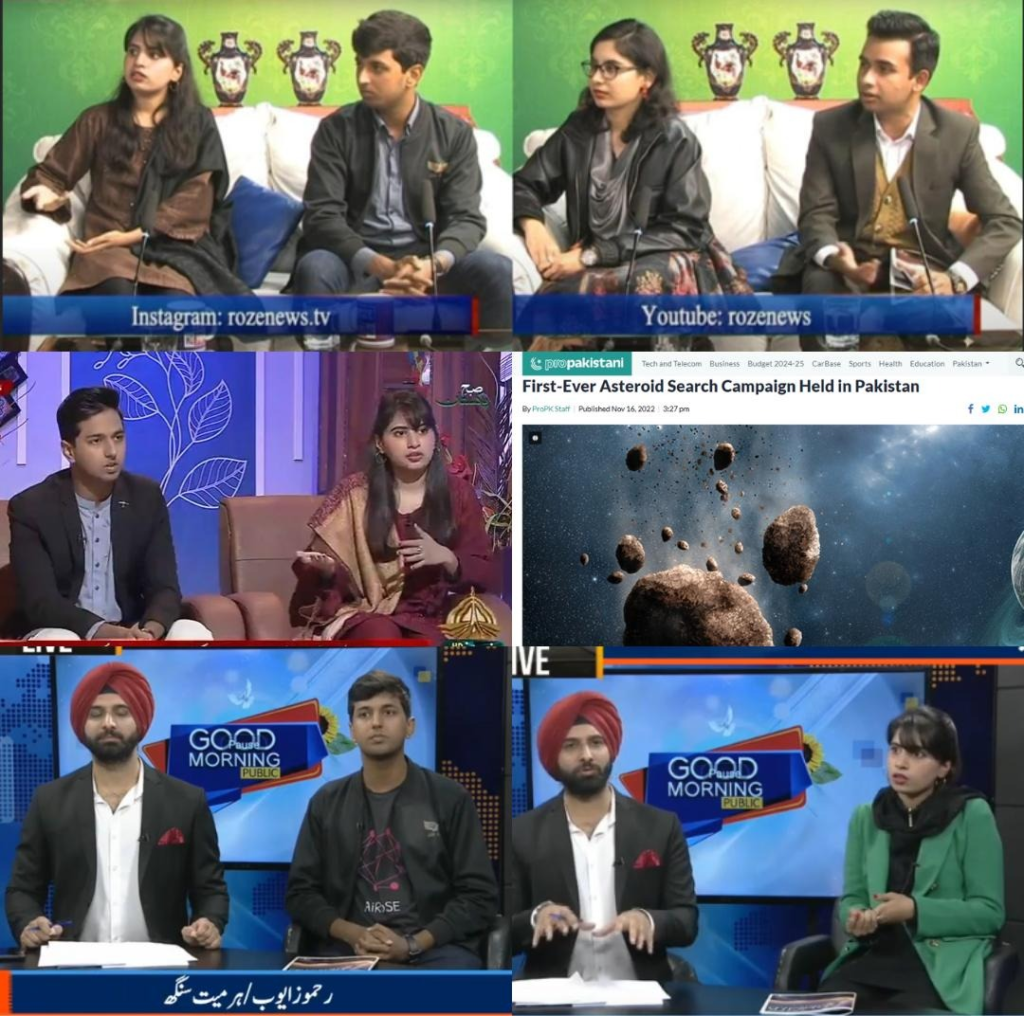
The Growth: 9 October – 3 November 2023
After the successful reception of the pilot campaign, it was decided to host APASC annually to raise awareness about citizen science programs and provide students with an opportunity to make meaningful contributions in the scientific realm.
A hands-on workshop on ‘How to Discover Asteroids’ was conducted by Rehmoz Ayub (now Co-Founder of Mach Alpha) in the local intelligentsia community center known as ‘The Black Hole’.
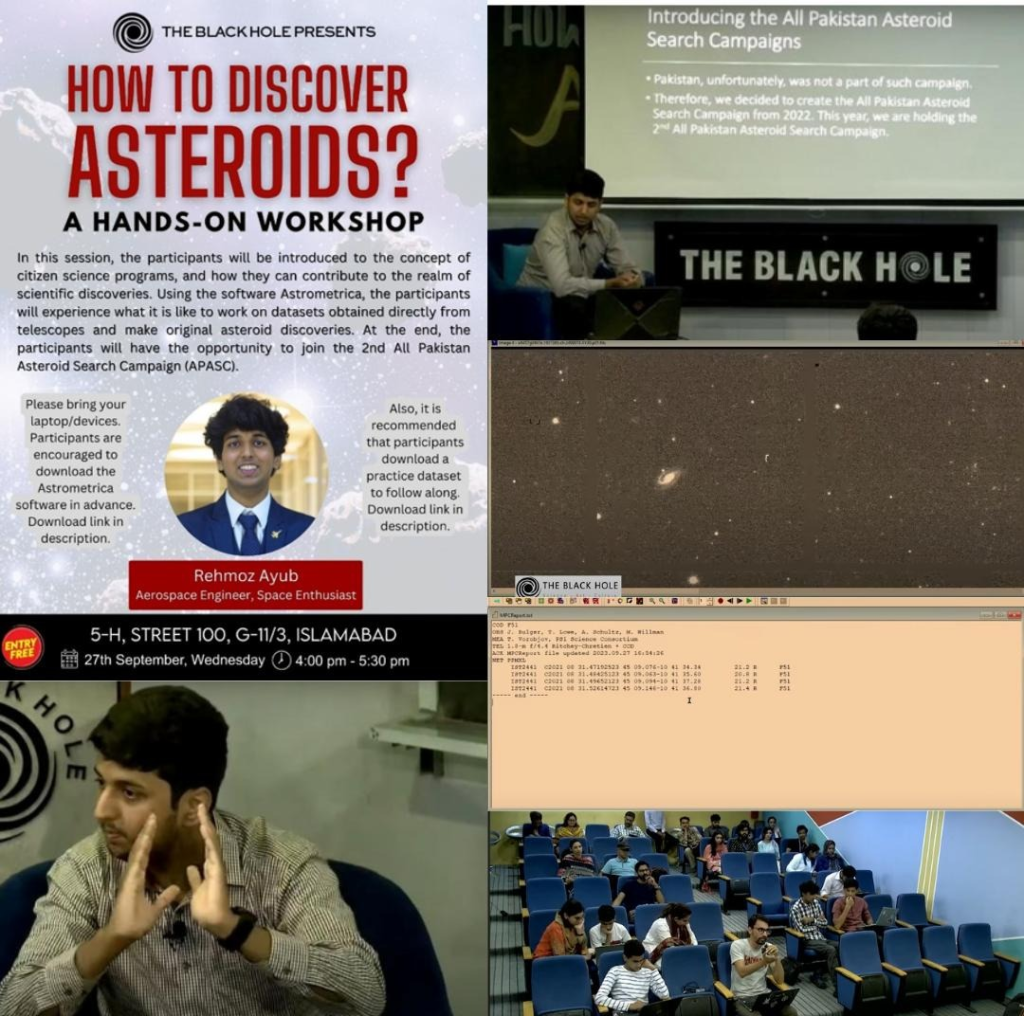
Workshop at The Black Hole for the 2nd All Pakistan Asteroid Search Campaign
In the summer of 2023, it was decided to bring forth the second rendition of the APASC, this time in coordination with Dilawaiz Saghir, and Talha Noor (National Points of Contact) for the Space Generation Advisory Council, which only became possible through the earlier networks the team had established. Zeeshan Abid, a former member of the Space Society IST also helped in the operations of this campaign and served as one of the mentors for participating teams.
In the second APASC, held from 9 October to 3 November 2023, an enhanced screening process and awareness-raising webinars were arranged for the participants, the campaign selected 40 participants from diverse backgrounds. From Kashmir to Karachi, middle schoolers to postgraduate researchers, this diverse group of participants, working in 10 teams, made 21 preliminary discoveries, with provisional discoveries yet to be announced.
The Future: 26 September – 21 October 2024
As a recently co-founded startup by one of the core members of the organizing team, Mach Alpha continues to promote the mission of making STEM education accessible to everyone in Pakistan. To this end, Mach Alpha is sponsoring any financial costs associated with the execution of the event, as well as providing any suitable opportunities to students who make significant strides during the campaign.
Excitement is building for the upcoming third APASC, scheduled for 26 September to 21 October 2024. This year, the campaign will be in collaboration with Mach Alpha, SGAC, the Attock Astronomical Society, and the Space Society IST. 60 students, divided into 15 teams, comprising 4 students each, will embark on this thrilling journey of discovery. The campaign will feature webinars led by experts in astrophysics and space science, open to all who share a passion for the cosmos.
To promote the event this year, a joint webinar was conducted where interested participants had a Q&A session with the organizers of the campaign.
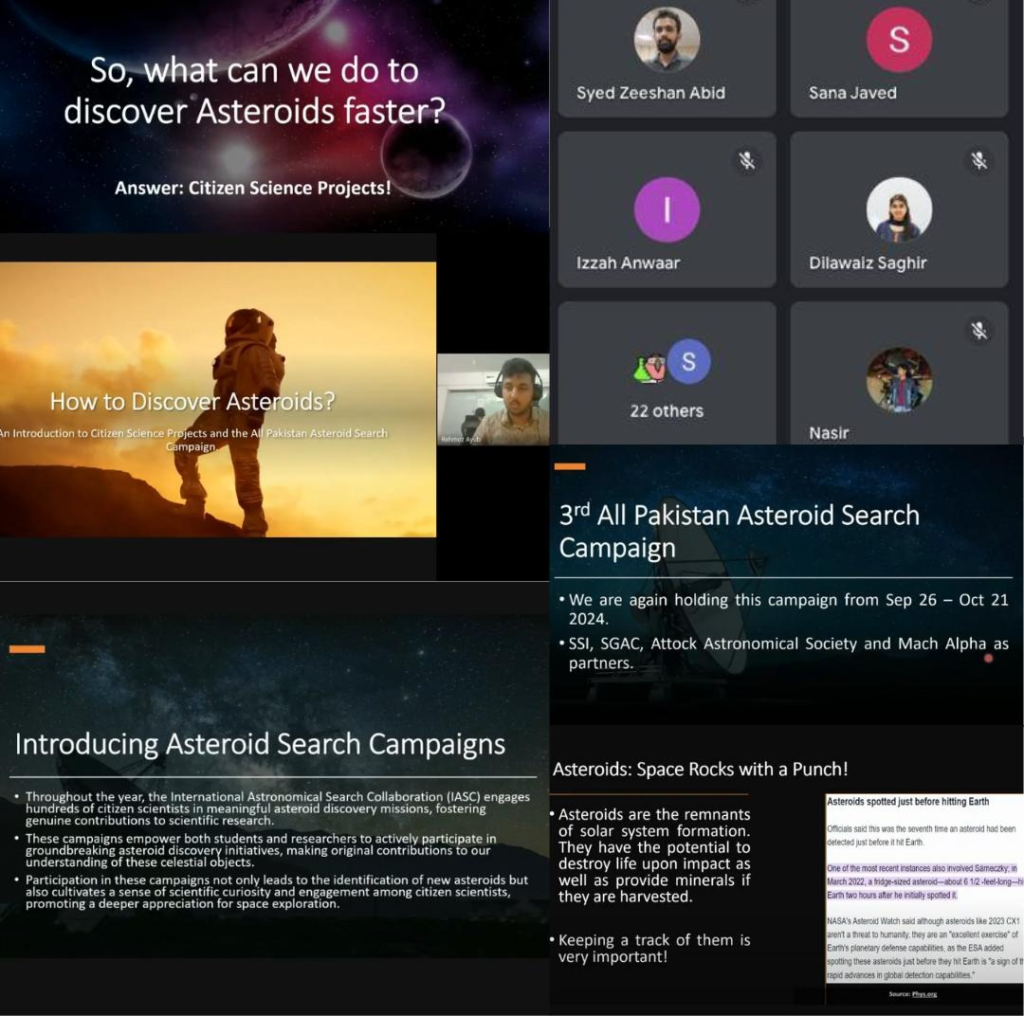
3rd APASC Introductory Webinar organized on 30th August 2024
Join us in this exciting journey of exploration and make your mark on the universe. The 3rd APASC is about to start soon!
